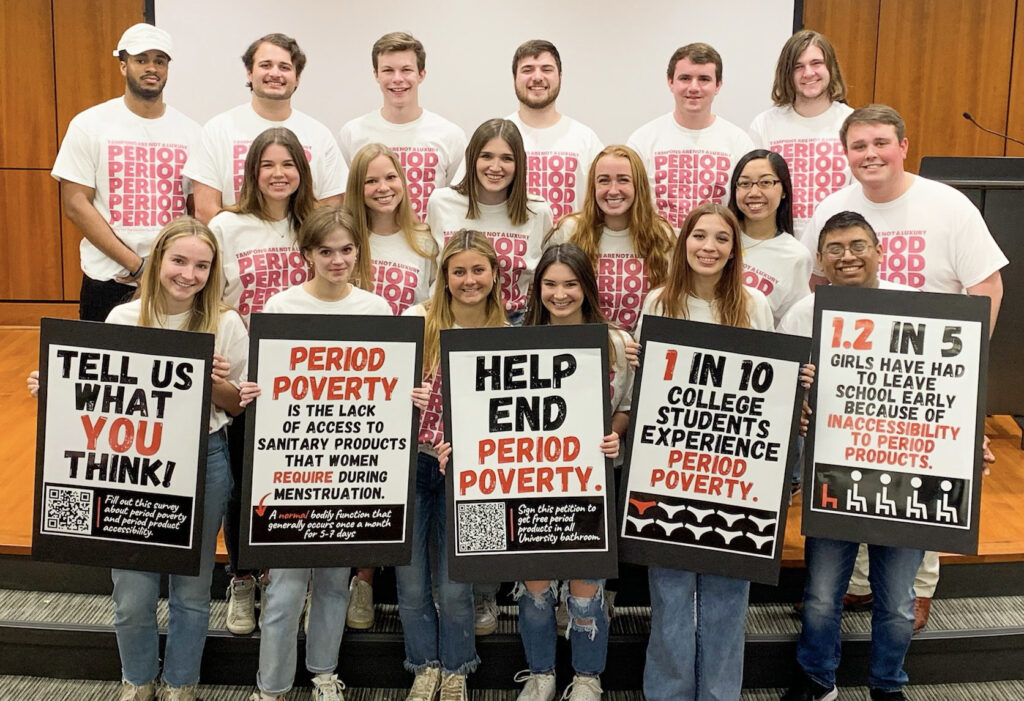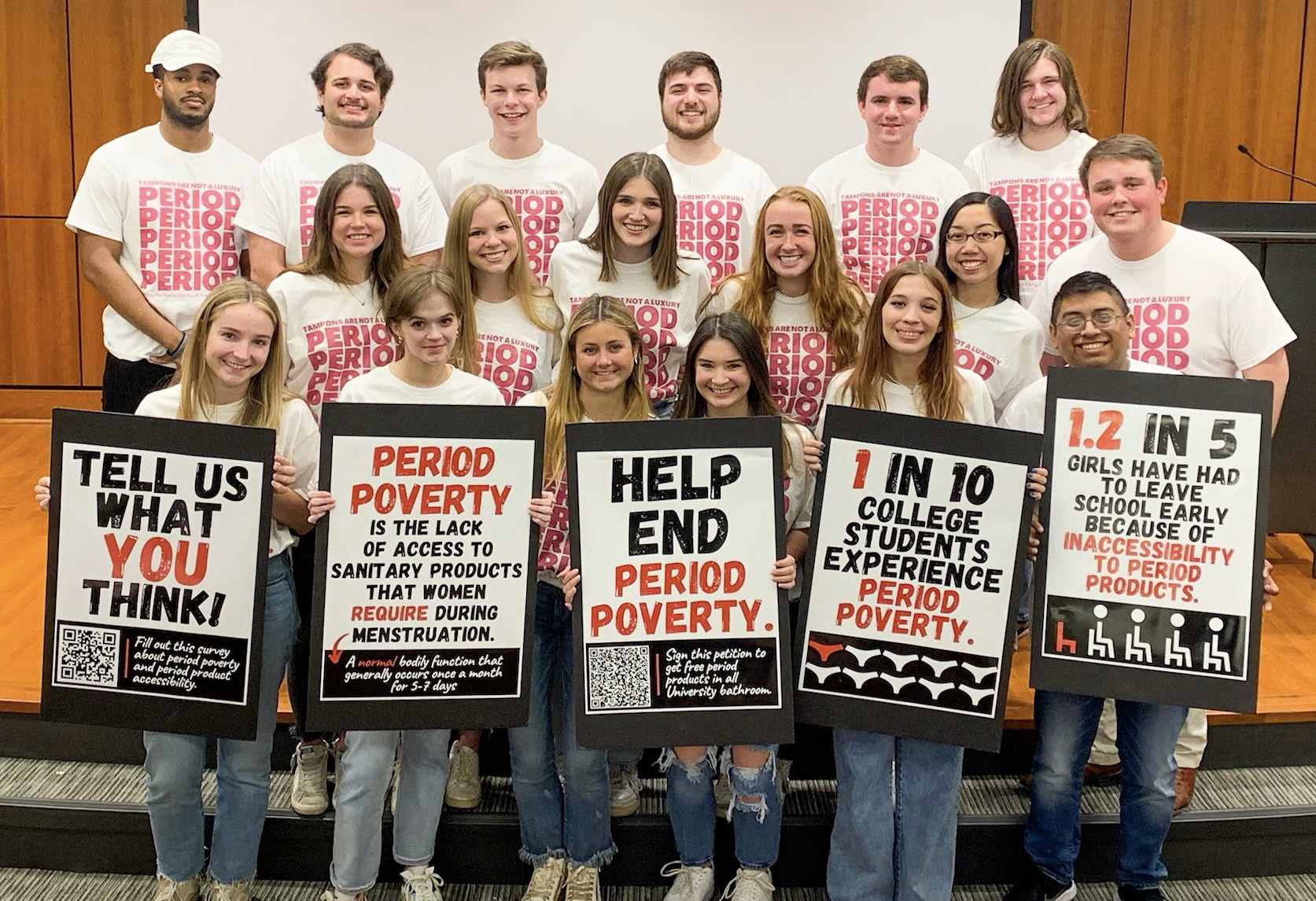By Clara Turnage
University of Mississippi

The University of Mississippi will begin providing free menstrual products on campus this semester following advocacy from the student group Period@UM.
The new menstrual product dispensers are being installed this month in high-traffic first-floor restrooms in 25 buildings across campus. University Health Services, the Division of Student Affairs and Facilities Management Department are partnering with Period@UM to install and maintain the dispensers.
Founded by senior Margaret Walker, Period@UM is the university’s branch of the national advocacy group PERIOD., and has been calling for the university to provide free sanitary pads and tampons since 2021. The group has grown to more than 200 members across campus, said Walker, a public policy leadership and integrated marketing communications major from Suwanee, Georgia.
“There’s data showing that lack of products restricts access to education,” Walker said. “Periods aren’t something we can control, but 50% of the population have them. Thinking about how many people on campus there are and how many that impacts – that’s a lot.”
A study from George Mason University’s College of Health and Human Services shows that 1 in 10 women on college campuses experience period poverty, or the lack of access to menstrual products, education, hygiene facilities, waste management or a combination of these things. Nearly 1 in 5 individuals in the United States have missed school or left classes early due to lack of period products, according to a Thinx and PERIOD survey in 2019.
Before the university’s commitment to provide free menstrual products, students with Period@UM put boxes containing period products across campus and refilled the containers weekly. Since November 2021, the group distributed more than 20,000 products, which were gifted or purchased with money from donations.
Lila Osman, a senior public policy leadership major and president of the Associated Student Body, was an inaugural officer of Period@UM, serving as advocacy chair.
“It’s really beautiful how this all came together from so many different groups on campus,” said Osman, an Ocean Springs native. “I hope that this provides to every menstruator on campus, and no one is ever in a position where they can’t get what they need.”
In April 2022, Period@UM partnered with a public policy leadership class from the Trent Lott Leadership Institute and gave a presentation to university administrators and stakeholders regarding the need for free menstrual products on campus. Alex Langhart, director of University Health Services, attended the presentation and recalled that he knew immediately that his department would have a role to play.
“They did a great job presenting the current lack of access to menstrual products for college students and why eliminating period poverty is important,” Langhart said. “It is amazing how supportive and collaborative departments on campus are. Everyone immediately jumped in to help.”
Now that menstrual products will be available to students, Walker said Period@UM will look to solve needs in the surrounding community by advocating against the pink tax and the tampon tax.
“That’s what I’m excited about,” Walker said. “With the university putting these dispensers up, we can go out and continue to serve the Oxford community. We want to host educational seminars and continue our advocacy work.
“We think it’s important for women to know what’s going on in their body during their period, and we think people who are struggling to put food on the table shouldn’t have to worry about buying menstrual products.”
Following graduation, Walker intends to attend law school at the University of Virginia, where she hopes to continue to advocate for the rights of women and promote equality. Walker said she has no doubt, however, that Period@UM will continue to make a difference in the Oxford and university communities.
“Leaving campus as a senior, I am so confident in the people who I’m leaving to take over on the new executive board,” she said. “Through this process, I’ve realized that anybody can make a difference.
“All it takes is the confidence to speak up and advocate for a change to be made.”


